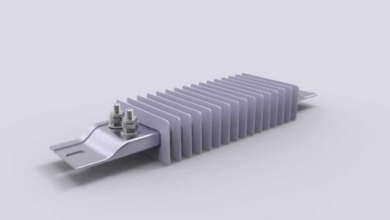Marine Electrician Services – Navigating the Complex World of Boat Electronics

In the world of boating, electrical systems are as crucial as the wind in the sails. Whether you’re cruising the open seas or navigating a quiet inland waterway, a reliable and well-maintained electrical system is essential for safety, comfort, and performance. Marine electrician play a vital role in ensuring that your boat’s electrical systems operate efficiently and safely. This article delves into the intricacies of marine electrical systems, the role of marine electricians, and the importance of maintaining boat electronics.
The Role of a Marine Electrician
A marine electrician is a specialized professional who focuses on the electrical systems of boats and other marine vessels. Unlike standard electricians who work on residential or commercial buildings, marine electricians are trained to handle the unique challenges posed by the marine environment. This includes exposure to saltwater, constant vibration, and the need for waterproofing and corrosion resistance.
Marine electricians are responsible for a wide range of tasks, including the installation, maintenance, and repair of electrical systems on boats. These systems include everything from the boat’s power generation and distribution to its navigation and communication equipment. The job requires a deep understanding of both AC and DC electrical systems, as well as the ability to work with various types of wiring, connectors, and equipment that are specifically designed for marine use.
Importance of Hiring a Qualified Marine Electrician
Given the complexity and critical nature of boat electrical systems, it’s essential to hire a qualified marine electrician for any electrical work on your vessel. A professional marine electrician will have the necessary certifications and experience to ensure that your boat’s electrical systems are installed and maintained to the highest standards. This not only enhances the safety and reliability of your boat but also ensures compliance with relevant maritime regulations and standards.
One of the key reasons to hire a marine electrician is the need for proper waterproofing and corrosion resistance in marine electrical systems. The marine environment is harsh, with constant exposure to saltwater, humidity, and extreme temperatures. These conditions can quickly degrade standard electrical components, leading to failures that can jeopardize the safety of the vessel and its occupants. A marine electrician will use specialized materials and techniques to protect electrical systems from these elements, ensuring long-term reliability.
Understanding Marine Electronics
Marine electronics encompass a wide range of devices and systems that are critical to the operation, navigation, and safety of a boat. These include navigation systems such as GPS and radar, communication systems like VHF radios, and entertainment systems for onboard comfort. In addition, marine electronics also cover essential safety equipment, such as electronic chart plotters, fish finders, and depth sounders.
The installation and integration of marine electronics require a high level of expertise, as these systems often need to be interconnected to work effectively. For example, a GPS system may need to communicate with a chart plotter, autopilot, and radar to provide accurate navigation data. A marine electrician is skilled in installing and configuring these systems to ensure seamless operation.
In addition to installation, marine electricians also perform regular maintenance and troubleshooting of marine electronics. This includes checking for software updates, testing connections, and diagnosing any issues that may arise. Regular maintenance is crucial to ensure that these systems remain operational and reliable, especially during extended voyages where access to repair services may be limited.
Boat Electrical Systems: Powering Your Journey
The electrical systems on a boat are responsible for powering a wide range of onboard equipment, from essential systems like lighting and navigation to amenities such as refrigeration and entertainment. Boat electrical systems typically consist of a combination of AC and DC circuits, with power being supplied by batteries, generators, and shore power connections.
One of the primary tasks of a marine electrician is to ensure that the boat’s electrical system is properly designed and installed to meet the vessel’s power needs. This includes selecting the appropriate wiring, circuit breakers, and distribution panels to handle the electrical load. In addition, a marine electrician will ensure that the system is properly grounded and protected against short circuits and overloads, which can cause damage to equipment and pose a safety hazard.
Battery systems are a critical component of a boat electrician system, providing power for essential systems when the engine is not running or when the boat is away from shore power. Marine electricians are responsible for installing and maintaining battery systems, including selecting the right type of batteries, ensuring proper charging, and configuring battery banks for optimal performance.
Another important aspect of boat electrical systems is the integration of renewable energy sources, such as solar panels and wind generators. These systems can help reduce the reliance on traditional fuel-powered generators, providing a more sustainable and cost-effective power solution for long-term cruising. A marine electrician can design and install these systems, ensuring they are properly integrated with the boat’s existing electrical system.
The Challenges of Marine Electrical Work
Working on marine electrical systems presents a unique set of challenges that require specialized knowledge and skills. One of the primary challenges is the need to work in confined spaces, as many boats have limited access to electrical components. Marine electricians must be adept at working in tight quarters, often in awkward positions, to install and service electrical systems.
Another challenge is the constant exposure to the elements, which can cause wear and tear on electrical components. Saltwater is particularly corrosive, and even the smallest amount of moisture can cause significant damage to electrical systems. Marine electricians must use specialized materials and techniques to protect electrical components from the harsh marine environment, including the use of marine-grade wiring, connectors, and sealants.
Safety is a top priority in marine electrical work, as any failure in the electrical system can have serious consequences. This includes the risk of fire, electrical shock, and loss of critical systems such as navigation and communication. Marine electricians must adhere to strict safety standards and best practices to ensure that all work is performed to the highest level of safety and reliability.
The Future of Marine Electronics and Electrical Systems
As technology continues to advance, the field of marine electronics and electrical systems is evolving rapidly. Modern boats are increasingly equipped with sophisticated electronic systems that offer greater automation, integration, and connectivity. This includes the use of digital switching systems, which allow for centralized control of all electrical systems on the boat, and the integration of smart technology, which enables remote monitoring and control via mobile devices.
The growing demand for renewable energy solutions is also driving innovation in marine electrical systems. Advances in battery technology, solar panels, and wind generators are making it more feasible for boats to operate off the grid for extended periods, reducing the reliance on traditional fuel-powered generators.
Good tip: if you’re traveling to Paris and renting an Airbnb, you might encounter electrical issues (power outages, fuse problems, etc.). Be aware that there’s a team of electricians in Paris who speak English and assist English-speaking tourists. You can find an electrician in Paris near me 24/7 by visiting their website to call them.
Conclusion
Marine electricians are essential to the safe and efficient operation of boats and other marine vessels. Their expertise in marine electrical systems and electronics ensures that all onboard systems function properly, providing power, navigation, communication, and safety. Whether you’re installing new equipment, maintaining existing systems, or upgrading to the latest technology, a qualified marine electrician is your best ally in keeping your boat’s electrical systems shipshape.
Investing in the services of a professional marine electrician is not just about ensuring compliance with regulations—it’s about safeguarding your vessel, your passengers, and your peace of mind. As marine technology continues to advance, the role of the marine electrician will remain indispensable in navigating the complexities of modern boat electronics.





